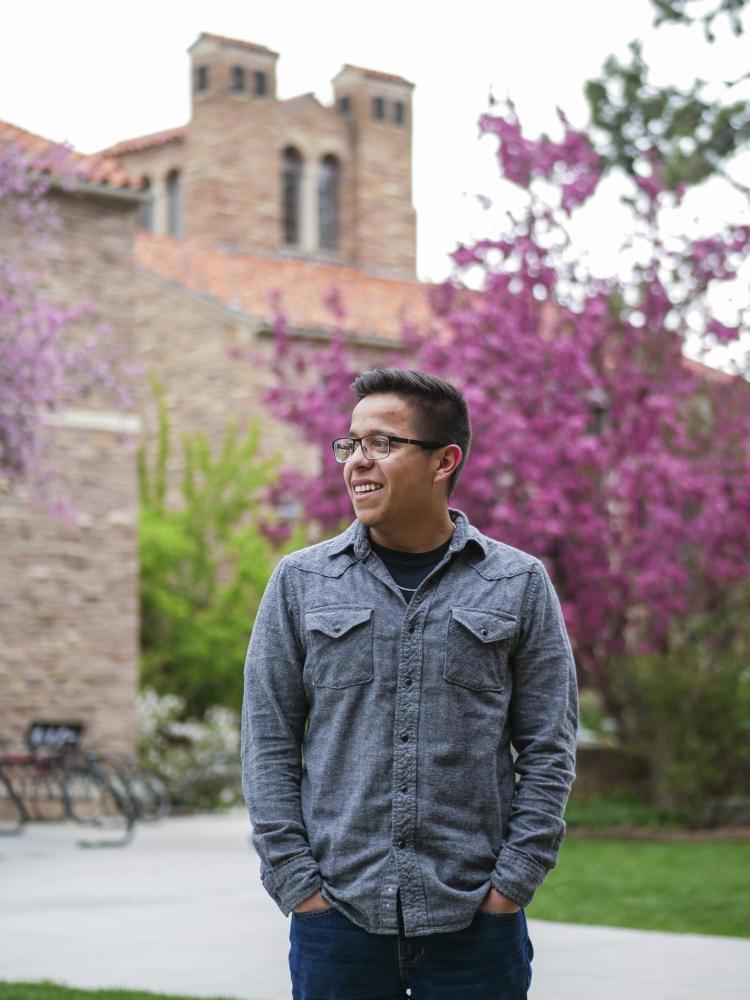Class of 2019: Adán Garcia
Adán Garcia knows the power of maps. In this case, it’s the Mercator projection, the rectangular depiction of the globe that you might have hanging up on your wall.
That image, Garcia said, distorts the sizes of countries, centering Europe while making it bigger than it should be in comparison to Africa, for instance. And, these maps have colonial roots.
“We have these images that we take as a matter of fact and common sense,” he said.
It’s this “Eurocentrism” that Garcia has dedicated much of his time at CU Boulder to unraveling.
On May 9, he and Christel Benjamin will be the first two students at the university to graduate with a dual bachelor’s and master’s degree in ethnic studies and education. The five-year program spurs its students to think about how they can drive change in schools and communities.
Garcia grew up in Longmont, Colorado, and had a public school education. But, he said, it wasn’t until he got to CU Boulder that he began to consider the living legacy of European colonialism in schooling and in what people consider to be valuable knowledge.
“I’ve learned many of the ‘great male histories’ about European elites,” Garcia said. “It’s only recently that I’ve been able to be in dialogue with Latin American, Caribbean scholars and continental African scholars, for instance.”
His outlook changed when he started reading other histories, such as those by writers like Maria Lugones, Ramón Grosfoguel and Sylvia Wynter.
He also stresses that he built a lot of knowledge through his peers. He participated in the Multicultural Leadership Scholars program through the School of Education and the student organizations United Mexican American Students y Movimiento Estudiantil Chicanx de Aztlán (UMAS y MEXA).
Garcia dedicated parts of his honor’s thesis to discussing Eurocentrism as it relates to universities and knowledge. He said that it’s crucial for youth to learn how the legacy of colonialism is presently impacting their thinking in sometimes subtle ways—such as with that Mercator map.
It’s a goal he will take with him as he begins a doctorate program next year at the University of California, Davis. There, he’ll study how writing can be used as a tool to nourish solidarity and critical consciousness among young people from marginalized communities.
“When teachers aren’t addressing the lived realities of their students, and using this as a jumping off point to learning and knowledge, where’s the value of it?” he said.



